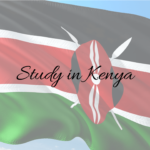
Why should you consider studying in South Africa?
Why South Africa?
If you are looking for an excellent education, as well as a little bit of adventure, then you should choose South Africa as your study abroad destination. There are several reasons why you may want to consider studying in South Africa:
- Quality of Education: South African universities are highly regarded for their academic excellence and high standards of education. Many of them are ranked among the top universities in Africa and 3 universities are among the top 500 universities in the world.
- Diversity: South Africa is a diverse country with a rich cultural heritage, making it an ideal place to study and experience different cultures. It has 11 official languages and a melting pot of ethnicities, which creates a unique and dynamic learning environment.
- No Language Barrier: The medium of instruction is English at many South African universities. This makes it accessible to the majority of students. English is widely spoken in South Africa. So it will be easy for international students to adapt to the environment easily. This also helps international students to be able to find exciting internships or part-time jobs in any field of their choice in South Africa.
- Natural Beauty: South Africa is known for its breathtaking natural beauty, from the stunning coastlines and mountain ranges to the iconic wildlife reserves. Studying in South Africa allows you to experience these wonders firsthand.
- Adventure: South Africa offers a range of outdoor activities, from hiking and surfing to game drives and bungee jumping. Studying in South Africa allows you to experience these adventures while pursuing your academic goals.
Financial Reasons
- Easy visa process: The visa process for studying in South Africa is relatively straightforward, cheap, and hassle-free. Making it an attractive option for international students who don’t want to deal with complicated visa procedures.
- Cost of Living: The cost of living in South Africa is relatively low compared to other popular study destinations such as the US, UK, and Australia. This makes it an affordable option for international students who want to experience high-quality education without breaking the bank.
- Scholarship opportunities: For students who are looking for study abroad scholarships. They would be encouraged to know that most of the universities in South Africa offer scholarships, grants, and other kinds of financial assistance.
- Employment Opportunities: South Africa has a growing economy and offers many employment opportunities for graduates. Studying in South Africa can give you a competitive edge in the job market. Especially in sectors such as engineering, medicine, and business.
What are the best courses to study in South Africa?
South Africa offers a wide range of courses for international students to choose from. Here are some of the best courses to study in South Africa:
- Business and Management: South Africa has a growing economy, and studying business and management can provide students with the skills and knowledge to succeed in the corporate world. Many South African universities offer excellent business and management courses, including MBA programs.
- Engineering: South Africa has a well-developed engineering industry, particularly in the fields of mining, infrastructure, and energy. Studying engineering in South Africa can provide students with the skills and expertise to contribute to these industries and make a real impact on society.
- Medicine: South Africa has a strong healthcare system and is a leader in medical research. Studying medicine in South Africa can provide students with access to world-class facilities and training, and opportunities to work with leading healthcare professionals.
- Environmental Science: South Africa has a diverse range of ecosystems, including wildlife reserves, mountains, and coastlines. Studying environmental science in South Africa can provide students with the skills and knowledge to contribute to the conservation and protection of these ecosystems.
- Social Sciences: South Africa has a complex and fascinating history. Studying social sciences such as anthropology, sociology, and political science can provide students with a deeper understanding of the country’s past, present, and future.
- Information Technology: South Africa has a thriving technology industry. Studying information technology can provide students with the skills and knowledge to succeed in this sector. Many South African universities offer excellent IT courses, including computer science, software engineering, and cybersecurity.
Top Universities in South Africa
Here are the top universities in South Africa, based on the 2023 QS World University Rankings:
- The University of Cape Town (ranked 237th globally)
- The University of Johannesburg (ranked 412th globally)
- The University of the Witwatersrand (ranked 428th globally)
- Stellenbosch University (ranked 454th globally)
- The University of Pretoria (ranked 591-600 globally)
- Rhodes University (ranked 801-1000 globally)
- The University of KwaZulu-Natal (ranked 801-1000 globally)
- The University of the Western Cape (ranked 1001+ globally)
- North-West University (ranked 1001+ globally)
- Nelson Mandela University (ranked 1001+ globally)
It’s important to note that there are many other excellent universities and colleges in South Africa. That offer quality education and unique academic programs. These rankings are just one measure of university quality and should be used as a guide rather than a definitive list.
How to Study in South Africa?
Now after reading so many good things about the benefits of studying in South Africa. You will be curious about how to get started. So, here is the detailed process that will guide you in fulfilling your dreams to study in South Africa.
Here are the steps to follow if you want to study abroad in South Africa:
Pre Acceptance
- Research universities and programs: Start by researching universities and academic programs in South Africa that align with your interests and goals. Look at admission requirements, tuition fees, and available scholarships.
- Apply to universities: Once you have identified the universities and programs you are interested in, you can apply directly to the institutions. The application process usually involves submitting an online application, academic transcripts, and supporting documents, such as a personal statement or letter of recommendation.
Post Acceptance
- Apply for a student visa: If you are accepted to a South African university. You will need to apply for a student visa. This process usually involves submitting your acceptance letter, proof of financial support, and a valid passport to the South African embassy or consulate in your home country.
- Secure funding: Studying abroad can be expensive, so it’s essential to secure funding to cover tuition fees, living expenses, and other costs associated with studying abroad. Look for scholarships, grants, and other forms of financial aid that may be available to international students.
- Prepare for your departure: Once you have been accepted to a South African university and obtained your student visa, you can start preparing for your departure. This may involve arranging travel and accommodation, purchasing health insurance, and familiarizing yourself with the culture and customs of South Africa.
It’s important to start the application process well in advance of your planned departure date, as the visa application process can take several weeks or even months to complete.
Essential Requirements
The specific requirements to study in South Africa can vary depending on the university and program you are applying for. However, here are some general requirements that you may need to fulfill:
Pre Acceptance
- Academic qualifications: You will typically need to have completed secondary school or its equivalent with good grades. You may also need to provide academic transcripts and certificates as part of your application.
- Language proficiency: South Africa has 11 official languages, but English is the most commonly used language in higher education. You may need to demonstrate your proficiency in English by taking an internationally recognized language test such as the TOEFL or IELTS.
- Application form: You will need to fill out an application form provided by the university you are applying to. The application form will ask for personal and academic information, and you may need to submit supporting documents such as a personal statement or letters of recommendation.
Post Acceptance
- Student visa: International students will typically need to apply for a student visa to study in South Africa. The requirements for a student visa can vary depending on your home country, but generally, you will need to provide proof of acceptance at a South African university, proof of financial support, and a valid passport.
- Health insurance: It is recommended that international students have health insurance that covers them for the duration of their studies in South Africa. Some universities may require students to have health insurance before they can enroll.
- Tuition fees: You will need to pay tuition fees to the university you are attending. Tuition fees can vary depending on the university and program you are enrolled in, as well as your residency status.
It’s important to check the specific requirements of the university and program you are applying to, as well as any additional requirements that may be required for international students.
The estimated cost of fulfilling your study abroad dream
The cost of studying in South Africa can vary depending on several factors, such as the university you attend, the program you are enrolled in, your residency status, and your living expenses. Here are some general estimates of the cost of studying in South Africa:
- Tuition fees: Tuition fees can range from around ZAR 20,000 to ZAR 100,000 per year (approximately USD 1,350 to USD 6,800). International students can expect to pay higher tuition fees than South African residents.
- Accommodation: The cost of accommodation can vary depending on whether you choose to live on-campus or off-campus. On-campus accommodation can range from around ZAR 25,000 to ZAR 60,000 per year (approximately USD 1,700 to USD 4,100), while off-campus accommodation can range from around ZAR 30,000 to ZAR 100,000 per year (approximately USD 2,050 to USD 6,800).
- Living expenses: The cost of living in South Africa can be relatively low compared to other study-abroad destinations. The cost of living will depend on your lifestyle, but you can expect to spend around ZAR 5,000 to ZAR 8,000 per month (approximately USD 340 to USD 540) on food, transportation, and other expenses.
- Health insurance: Health insurance is recommended for international students studying in South Africa. The cost of health insurance can vary depending on the provider and the coverage you choose.
It’s important to note that these are just estimates, and the actual cost of studying in South Africa can vary depending on several factors. Be sure to research the specific costs associated with your chosen university and program, as well as any scholarships or financial aid that may be available to help offset the cost of studying in South Africa.
Academic Scholarships and Grants
There are several scholarships available for international students who want to study in South Africa. Here are some of the most popular scholarship opportunities:
- The Mandela Rhodes Scholarship: This is a fully-funded scholarship that covers tuition, accommodation, and other living expenses for postgraduate studies in South Africa. The scholarship is awarded to African students who have demonstrated leadership potential.
- The African Scholar’s Fund: This scholarship is available to African students who are studying at a South African university. The scholarship covers tuition fees, accommodation, and other living expenses.
- The Canon Collins Trust Scholarship: This scholarship is available to African students who want to pursue postgraduate studies in South Africa. The scholarship covers tuition fees, accommodation, and other living expenses.
- The South African-German Centre for Development Research Scholarship: This scholarship is available to students who want to pursue a master’s degree in development studies at the University of the Western Cape. The scholarship covers tuition fees, accommodation, and other living expenses.
- The National Research Foundation Scholarship: This scholarship is available to international students who want to pursue postgraduate studies in South Africa. The scholarship covers tuition fees, accommodation, and other living expenses.
Some other scholarships are
- Queen Elizabeth Commonwealth Scholarships
- Scholarships for LLM/MPhil (Human Rights Democratisation in Africa) at the University of Pretoria
- Bertha Scholarships for Social Innovators in Africa
- IAL Research Grants For Doctoral Studies
- HKADC Overseas Arts Administration Scholarships
- POGO-SCOR Visiting Fellowships For Developing Countries
- TEG Postgraduate Training Fellowship
- TUT Postgraduate Scholarships
- Royal Society International Exchange Programme
- MasterCard Foundation Scholarships at the University of Cape Town (UCT)
These are just some of the scholarship opportunities available for international students who want to study in South Africa. Be sure to research other scholarship opportunities that may be available through your chosen university or international organizations.
Step-by-step process to get your Student Visa
Here is a detailed step-by-step process of how to apply for a South African student visa:
Pre Visa Approval
Step 1: Choose a university and a study program in South Africa that suits your academic interests and career goals. Apply to the university and wait for the acceptance letter.
Step 2: After receiving the acceptance letter. Gather required documents Before applying for a student visa, you will need to gather the required documents, which typically include:
- A valid passport with at least two blank pages
- Completed application form
- Two recent passport-sized photographs
- Proof of acceptance from the university
- Proof of financial means to support your stay in South Africa
- Health certificate
- Police clearance certificate
Step 3: Submit your visa application. Once you have all the required documents, you can submit your visa application at the South African embassy or consulate in your home country. You may be required to provide additional documentation or attend an interview.
Step 4: Pay the visa fees. You will need to pay the visa application fee when submitting your application.
Step 5: Wait for processing. It can take several weeks or even months for your visa application to be processed. You should wait for a notification from the embassy or consulate on the status of your application.
Post Visa Approval
Step 7: Receive your visa. If your application is approved, you will receive your visa. Be sure to check the visa to ensure that all information is correct.
Step 8: Arrive in South Africa. Once you arrive in South Africa, you will need to present your passport, visa, and acceptance letter from the university. You will also need to register with the university and obtain a study permit within 90 days of arrival.
Step 9: Obtain a study permit, To obtain a study permit, you will need to submit the following documents:
- Your passport
- Your visa
- Proof of acceptance from the university
- Proof of financial means to support your stay in South Africa
- Medical certificate
- Police clearance certificate
- Completed study permit application form
It’s important to note that the visa application process and requirements can vary depending on your home country and the university you are attending. Be sure to check with the South African embassy or consulate in your home country for specific requirements and instructions.
What are after-study opportunities in South Africa?
South Africa offers a variety of opportunities for international students who wish to stay and work after their studies. Here are some of the options available:
Work Visas
- Work Visa: You can apply for a work visa if you have a job offer from a South African employer. This visa will allow you to work in South Africa for a specific period of time.
- Critical Skills Visa: If you have skills that are in demand in South Africa, you may be eligible for a Critical Skills Visa. This visa allows you to work and live in South Africa for up to five years and may lead to permanent residency.
- Post-Study Work Visa: South Africa offers a Post-Study Work Visa to graduates who have completed their studies at a South African university. This visa allows you to work in South Africa for up to 12 months after graduation, giving you time to find a job and transition to a work visa or other long-term visa option.
Other Visa Types
- Business Visa: If you want to start a business in South Africa, you can apply for a Business Visa. This visa allows you to start and operate a business in South Africa for up to three years.
- Permanent Residency: You can apply for permanent residency in South Africa if you meet certain criteria, such as having a job offer or a business in South Africa, or having a South African spouse or partner.
It’s important to note that the requirements and eligibility for these visa options can vary and may be subject to change. Be sure to check the specific requirements and application processes for each option before making any plans to stay and work in South Africa after your studies.
Hope you found this article helpful, if you have any suggestions or queries regarding this then feel free to comment on the post, and we will get back to your query ASAP. Thank you and Best of Luck😊.




